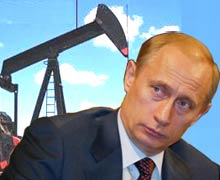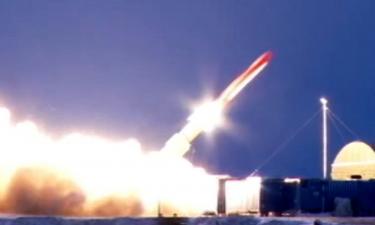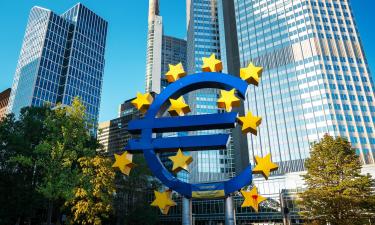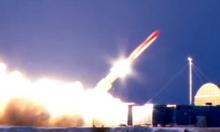Petrodollars to ruin Russian economy despite high oil prices
Russia is not able to sell more than it sells at the moment, although oil prices continue their way up
The growing amount of petrodollars against the background of increasing oil prices, may eventually damage the Russian economy. Experts pointed out the problem long ago, but the question was left unnoticed, until it attracted the attention of the Russian president. 
Vladimir Putin acknowledged during yesterday's meeting with the Mexican president in Moscow that the growing volume of petrodollars was not very helpful in the struggle against poverty. “It helps as much as it replenishes the budget,” Putin specified.
The inflow of petrodollars creates certain difficulties for both the Central Bank and the government of Russia in terms of restraining inflation on the set levels. It also leads to the excessive strengthening of the national currency, which does not make for the successful activity of Russian exporters and the processing industry, Vladimir Putin said.
Experts of the Russian Ministry for Economic Development and Trade share Putin's opinion on the matter. According to latest analytical reports, which the ministry released, the growth of world prices on oil does not exert a positive influence on the Russian economy. The analysis showed that the Russian economy benefits from increasing oil prices best, when the prices reach the level between 30-38 dollars per barrel. Higher prices on oil do not affect the economic growth, experts say.
It is the Russian fuel and energy complex, which created such circumstances. Despite the incredibly favorable conjuncture on the world market of oil, investments in modernization and enlargement of production capacities (the mining and the processing) are lessening. In fact, a lot of Russian oil companies make their profits from high prices on raw materials without having an eye for the future at all.
Vladimir Putin pointed the issue out, when he said that oil companies have been paying little attention to the mining and processing of oil lately. The Russian president particularly said that oil companies do not invest much in the creation of new production capacities – building oil refineries, for example. Moreover, the above-mentioned trend determines high prices on fuel in Russia.
It is worth mentioning that Russia can not gain the maximum profit from currently favorable price conditions because of insufficient investments to increase the oil extraction. Consequently, Russia is not able to sell more than it sells at the moment, although oil prices continue their way up. In addition, the incapability to increase its share on the world market of oil deprives Russia of an opportunity to dictate its conditions to other oil powers.
”It is the market that determines prices on any goods. However, we cannot exert a serious influence on it,” Vladimir Putin said.
Furthermore, Russian oil companies' limited extraction capacities make the national economy dependent on fuel prices. The fuel and energy complex - the foundation of the Russian economy - will not be able to increase either the oil output or the oil export if oil prices start sliding.
Experts of the Russian Ministry for Economic Development and Trade are deeply concerned about the stagnant position of the Russian fuel and energy complex. Ministerial specialists say that Russia will not be able to double the nation's GDP within the time that the president set for the objective. The oil output in Russia will be decreasing, specialists forecast.
The oil extraction has virtually stopped growing since the beginning of the current year in Russia. According to dismal forecasts from the Ministry for Economic Development and Trade, the oil output and export will drop by about ten million tons by the end of 2005. This quantity in like a drop in the ocean in comparison with the overall oil production in Russia – 460 million tons (300 million tons of which are exported). However, the setback has already taken the form of a continuing tendency.
Subscribe to Pravda.Ru Telegram channel, Facebook, RSS!




